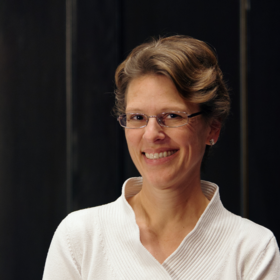BURURLIRES
Microbiome and Resistome of Mycobacterium ulcerans lesions
Project Lead: Thorsten Thye (BNITM, Germany), Denise Dekker (BNITM, Germany), Richard Odame Phillips (KCCR, Ghana), Yaw Ampem Amoako (KCCR, Ghana)
Project Team: Charity Wiafe Akenten (Microbiology), Wibke Loag and Berchie Agyemang (Data Management)
Buruli ulcer (BU) is a neglected bacterial disease, predominantly occurring in West Africa. The causative agent Mycobacterium ulcerans induces severe ulcerative skin lesions mainly in young children. The treatment of choice is an antibiotic combination therapy of rifampicin and clarithromycin supported by surgical debridement. Treatment success depends on several factors comprising the size of the affected skin, the composition of the bacterial wound flora, and also treatment compliance. However, despite successes of antibiotic therapy, a significant proportion of patients do not respond adequately to treatment and wound healing varies substantially. In a considerable number of cases, therapy is delayed or has failed completely. Except from a possible poor patient compliance, the bacterial composition of BU lesions might be a driving factor affecting the healing process, as well as antimicrobial resistance of bacteria within the wounds including resistant M. ulcerans strains. These factors have so far received little attention in endemic areas in resource-limited countries. Therefore, the BURURLIRES project aims to analyse the wound microbiome of BU lesions by culture-based methods in addition to next-generation sequencing (NGS) analysis, where metagenomic analyses will complement culture-based investigations to uncover the full range of bacterial diversity.
BURULIRES's main objectives are:
- Perform microbiological analyses of bacteria found in BU wounds.
- Perform antimicrobial resistance testing of the wound microbiome by phenotypic- and NGS- methods.
- Determine the impact of the microbiome both in wounds and unaffected skin on wound healing and the development of antibiotic resistances.
| Partner Country | Ghana |
| Institutions | Kumasi Centre for Collaborative Research in Tropical Medicine (KCCR) |
Through its activities, BURURLIRES will allow the identification of relevant bacteria involved in BU lesion development and healing processes. In addition, antibiotic resistance will be determined phenotypically and genotypically. NGS analysis may also uncover bacteria that cannot be cultured by standard methods and have previously not been associated with delayed wound healing. The bacterial composition of BU wounds will be compared amongst patients where despite adequate antibiotic therapy poor healing of the lesions was observed, and those that responded well to therapy. Individuals with a long and poor healing history are at risk to be colonized by a peculiar microbial flora and/or carrying antibiotic resistant bacteria including resistant M. ulcerans strains. Thus, preparedness for the emergence of resistant bacteria is necessary to respond adequately and to change therapy regimes. BU patients will be enrolled at five hospitals located in BU endemic regions of Ghana. All patients will be followed during and after antibiotic treatment. Fostering collaborations between the German and African institutions will have synergistic effects on research activities including metagenomic analysis and pave the way for future studies on treatment and diagnosis of Buruli ulcer.
Outcomes of this study will inform how development of AMR develop and progress during treatment of Buruli ulcer and will be helpful in guiding antimicrobial therapy.
| Funding Period | 09/2023-12/2026 |










